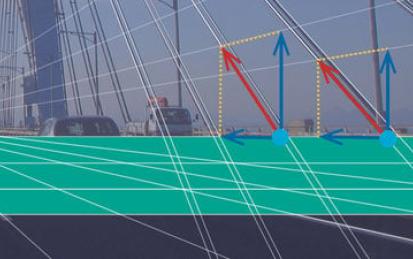

Our Courses

Machine Learning Algorithms: Supervised Learning Tip to Tail
This course takes you from understanding the fundamentals of a machine learning project. Learners will understand and implement supervised learning techniques on real case studies to analyze business case scenarios where decision trees, k-nearest neighbours and support vector machines are optimally used.
-
Course by

-
 Self Paced
Self Paced
-
 9 hours
9 hours
-
 English
English

Optimizing Machine Learning Performance
This course synthesizes everything your have learned in the applied machine learning specialization. You will now walk through a complete machine learning project to prepare a machine learning maintenance roadmap. You will understand and analyze how to deal with changing data. You will also be able to identify and interpret potential unintended effects in your project. You will understand and define procedures to operationalize and maintain your applied machine learning model.
-
Course by

-
 Self Paced
Self Paced
-
 12 hours
12 hours
-
 English
English

Advanced Linear Algebra: Foundations to Frontiers
Learn advanced linear algebra for computing.
-
Course by

-
 Self Paced
Self Paced
-
 English
English

Linear Algebra I: Vectors and Linear Equations
This course provides an overview of bachelor-level linear algebra. You will review all the concepts and practice and refresh the skills related to vectors and linear equations.
-
Course by

-
 Self Paced
Self Paced
-
 27
27
-
 English
English

Linear Algebra II: Matrices and Linear Transformations
This course provides an overview of bachelor-level linear algebra. You will review all the concepts and practice and refresh the skills related to matrices and linear transformations.
-
Course by

-
 Self Paced
Self Paced
-
 21
21
-
 English
English

Doğrusal Cebir I: Uzaylar ve İşlemciler / Linear Algebra I: Spaces and Operators
Bu ders doğrusal cebir ikili dizinin birincisidir. Doğrusal uzaylar kavramı, doğrusal işlemciler, matris gösterimleri ve denklem sistemlerinin hesaplanabilmesi için temel araçlar vb. konuları içermektedir.
-
Course by

-
 Self Paced
Self Paced
-
 Turkish
Turkish

Çok değişkenli Fonksiyon I: Kavramlar / Multivariable Calculus I: Concepts
Ders çok değişkenli fonksiyonlardaki ikili dizinin birincisidir. Burada çok değişkenli fonksiyonlardaki temel türev ve entegral kavramlarını geliştirmek ve bu konulardaki problemleri çözmekteki temel yöntemleri sunmaktadır.
-
Course by

-
 Self Paced
Self Paced
-
 Turkish
Turkish

Mathematics for Machine Learning: PCA
This intermediate-level course introduces the mathematical foundations to derive Principal Component Analysis (PCA), a fundamental dimensionality reduction technique. We'll cover some basic statistics of data sets, such as mean values and variances, we'll compute distances and angles between vectors using inner products and derive orthogonal projections of data onto lower-dimensional subspaces.
-
Course by

-
 Self Paced
Self Paced
-
 21 hours
21 hours
-
 English
English

Motion Planning for Self-Driving Cars
Welcome to Motion Planning for Self-Driving Cars, the fourth course in University of Toronto’s Self-Driving Cars Specialization. This course will introduce you to the main planning tasks in autonomous driving, including mission planning, behavior planning and local planning. By the end of this course, you will be able to find the shortest path over a graph or road network using Dijkstra's and the A* algorithm, use finite state machines to select safe behaviors to execute, and design optimal, smooth paths and velocity profiles to navigate safely around obstacles while obeying traffic laws.
-
Course by

-
 Self Paced
Self Paced
-
 32 hours
32 hours
-
 English
English

CUDA Advanced Libraries
This course will complete the GPU specialization, focusing on the leading libraries distributed as part of the CUDA Toolkit. Students will learn how to use CuFFT, and linear algebra libraries to perform complex mathematical computations. The Thrust library’s capabilities in representing common data structures and associated algorithms will be introduced. Using cuDNN and cuTensor they will be able to develop machine learning applications that help with object detection, human language translation and image classification.
-
Course by

-
 Self Paced
Self Paced
-
 25 hours
25 hours
-
 English
English

AI Workflow: Feature Engineering and Bias Detection
This is the third course in the IBM AI Enterprise Workflow Certification specialization. You are STRONGLY encouraged to complete these courses in order as they are not individual independent courses, but part of a workflow where each course builds on the previous ones. Course 3 introduces you to the next stage of the workflow for our hypothetical media company. In this stage of work you will learn best practices for feature engineering, handling class imbalances and detecting bias in the data. Class imbalances can seriously affect the validity of your
-
Course by

-
 Self Paced
Self Paced
-
 12 hours
12 hours
-
 English
English

Unsupervised Algorithms in Machine Learning
One of the most useful areas in machine learning is discovering hidden patterns from unlabeled data. Add the fundamentals of this in-demand skill to your Data Science toolkit. In this course, we will learn selected unsupervised learning methods for dimensionality reduction, clustering, and learning latent features. We will also focus on real-world applications such as recommender systems with hands-on examples of product recommendation algorithms. Prior coding or scripting knowledge is required. We will be utilizing Python extensively throughout the course.
-
Course by

-
 Self Paced
Self Paced
-
 38 hours
38 hours
-
 English
English

Çok değişkenli Fonksiyon II: Uygulamalar / Multivariable Calculus II: Applications
Ders çok değişkenli fonksiyonlardaki iki derslik dizinin ikincisidir. Birinci ders türev ve entegral kavramlarını geliştirmekte ve bu konulardaki problemleri temel çözme yöntemlerini sunmaktadır. Bu ders, birinci derste geliştirilen temeller üzerine daha ileri konuları işlemekte ve daha kapsamlı uygulamalar ve çözümlü örnekler sunmaktadır.
-
Course by

-
 Self Paced
Self Paced
-
 Turkish
Turkish

Supervised Machine Learning: Regression
This course introduces you to one of the main types of modelling families of supervised Machine Learning: Regression. You will learn how to train regression models to predict continuous outcomes and how to use error metrics to compare across different models.
-
Course by

-
 Self Paced
Self Paced
-
 21 hours
21 hours
-
 English
English

Linear Algebra - Foundations to Frontiers
Learn the mathematics behind linear algebra and link it to matrix software development.
-
Course by

-
 Self Paced
Self Paced
-
 English
English

Advanced Linear Models for Data Science 2: Statistical Linear Models
Welcome to the Advanced Linear Models for Data Science Class 2: Statistical Linear Models. This class is an introduction to least squares from a linear algebraic and mathematical perspective.
-
Course by

-
 Self Paced
Self Paced
-
 6 hours
6 hours
-
 English
English

Digital Signal Processing 1: Basic Concepts and Algorithms
Digital Signal Processing is the branch of engineering that, in the space of just a few decades, has enabled unprecedented levels of interpersonal communication and of on-demand entertainment. By reworking the principles of electronics, telecommunication and computer science into a unifying paradigm, DSP is a the heart of the digital revolution that brought us CDs, DVDs, MP3 players, mobile phones and countless other devices. In this series of four courses, you will learn the fundamentals of Digital Signal Processing from the ground up.
-
Course by

-
 Self Paced
Self Paced
-
 29 hours
29 hours
-
 English
English

VLSI CAD Part II: Layout
You should complete the VLSI CAD Part I: Logic course before beginning this course. A modern VLSI chip is a remarkably complex beast: billions of transistors, millions of logic gates deployed for computation and control, big blocks of memory, embedded blocks of pre-designed functions designed by third parties (called “intellectual property” or IP blocks). How do people manage to design these complicated chips? Answer: a sequence of computer aided design (CAD) tools takes an abstract description of the chip, and refines it step-wise to a final design.
-
Course by

-
 Self Paced
Self Paced
-
 24 hours
24 hours
-
 English
English
Foundations of Quantum Mechanics
This course can also be taken for academic credit as ECEA 5610, part of CU Boulder’s Master of Science in Electrical Engineering degree. This course covers the fundamental concepts and topics of quantum mechanics which include basic concepts, 1D potential problems, time evolution of quantum states, and essential linear algebra. It provides undergraduate level foundational knowledge and build on them more advanced topics. At the end of this course learners will be able to: 1.
-
Course by

-
 Self Paced
Self Paced
-
 27 hours
27 hours
-
 English
English

Introduction to Machine Learning: Supervised Learning
In this course, you’ll be learning various supervised ML algorithms and prediction tasks applied to different data. You’ll learn when to use which model and why, and how to improve the model performances. We will cover models such as linear and logistic regression, KNN, Decision trees and ensembling methods such as Random Forest and Boosting, kernel methods such as SVM. Prior coding or scripting knowledge is required. We will be utilizing Python extensively throughout the course.
-
Course by

-
 Self Paced
Self Paced
-
 40 hours
40 hours
-
 English
English

Linear Algebra Basics
Machine learning and data science are the most popular topics of research nowadays. They are applied in all the areas of engineering and sciences. Various machine learning tools provide a data-driven solution to various real-life problems. Basic knowledge of linear algebra is necessary to develop new algorithms for machine learning and data science. In this course, you will learn about the mathematical concepts related to linear algebra, which include vector spaces, subspaces, linear span, basis, and dimension.
-
Course by

-
 21 hours
21 hours
-
 English
English

Self-Driving Cars
Be at the forefront of the autonomous driving industry. With market researchers predicting a $42-billion market and more than 20 million self-driving cars on the road by 2025, the next big job boom is right around the corner. This Specialization gives you a comprehensive understanding of state-of-the-art engineering practices used in the self-driving car industry.
-
Course by

-
 Self Paced
Self Paced
-
 English
English

Mathematics for Machine Learning
For a lot of higher level courses in Machine Learning and Data Science, you find you need to freshen up on the basics in mathematics - stuff you may have studied before in school or university, but which was taught in another context, or not very intuitively, such that you struggle to relate it to how it’s used in Computer Science.
-
Course by

-
 Self Paced
Self Paced
-
 English
English

Advanced Statistics for Data Science
Fundamental concepts in probability, statistics and linear models are primary building blocks for data science work. Learners aspiring to become biostatisticians and data scientists will benefit from the foundational knowledge being offered in this specialization. It will enable the learner to understand the behind-the-scenes mechanism of key modeling tools in data science, like least squares and linear regression. This specialization starts with Mathematical Statistics bootcamps, specifically concepts and methods used in biostatistics applications.
-
Course by

-
 Self Paced
Self Paced
-
 English
English

Computer Vision Basics
By the end of this course, learners will understand what computer vision is, as well as its mission of making computers see and interpret the world as humans do, by learning core concepts of the field and receiving an introduction to human vision capabilities. They are equipped to identify some key application areas of computer vision and understand the digital imaging process. The course covers crucial elements that enable computer vision: digital signal processing, neuroscience and artificial intelligence.
-
Course by

-
 13 hours
13 hours
-
 English
English



